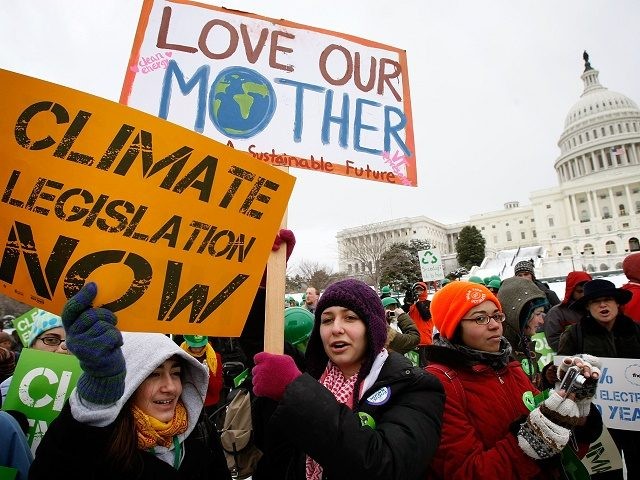The #Exxonknew legal action brought by two Californian cities against five Big Oil companies has ended in humiliating defeat for the climate alarmists.
According to Wall Street Journal:
U.S. District Judge William Alsup granted a motion by the companies – Chevron, Exxon Mobil, ConocoPhillips, BP, and Royal Dutch Shell – to dismiss the suits, ruling that while global warming was a real threat, it must be fixed “by our political branches.”
“The benefits of fossil fuels are worldwide,” he wrote. “The problem deserves a solution on a more vast scale than can be supplied by a district judge or jury in a public nuisance case.”
The cities of San Francisco and Oakland had sued the oil majors alleging that they had conspired, Big-Tobacco-style, to conceal the harm of their products. Had they lost, the oil companies might have been compelled to pay billions of dollars in compensation for the damage they have allegedly done, inter alia by causing sea levels to rise.
Though the defendants chose not to fight the case on the existence – or otherwise – of man-made global warming, the judge’s ruling represents a serious blow to the cause of climate alarmism. Essentially, Judge Alsup’s order has ruled that on balance fossil fuels do more good than harm. This is the opposite of what climate alarmists believe: global warming is so serious, they think, that fossil fuels must be abandoned as quickly as possible in favor of renewables.
Here are some of the judge’s key findings:
“The issue is not science. All parties agree that fossil fuels have led to global warming and ocean rise and will continue to do so.”
“The scope of plaintiffs’ theory is breathtaking. It would reach the sale of fossil fuels anywhere in the world, including all past and otherwise lawful sales, where the seller knew that the combustion of fossil fuels contributed to the phenomenon of global warming. While these actions are brought against the first, second, fourth, sixth and ninth largest producers of fossil fuels, anyone who supplied fossil fuels with knowledge of the problem would be liable.”
“With respect to balancing the social utility against the gravity of the anticipated harm, it is true that carbon dioxide released from fossil fuels has caused (and will continue to cause) global warming. But against that negative, we must weigh this positive: our industrial revolution and the development of our modern world has literally been fueled by oil and coal. Without those fuels, virtually all of our monumental progress would have been impossible. All of us have benefitted. Having reaped the benefit of that historic progress, would it really be fair to now ignore our own responsibility in the use of fossil fuels and place the blame for global warming on those who supplied what we demanded? Is it really fair, in light of those benefits, to say that the sale of fossil fuels was unreasonable?”
“Plaintiffs’ claims require a balancing of policy concerns — including the harmful effects of greenhouse gas emissions, our industrialized society’s dependence on fossil fuels, and national security. Through the Clean Air Act, Congress “entrust[ed] such complex balancing to the EPA in the first instance, in combination with state regulators.” AEP, 564 U.S. at 427. And, not long ago, the problem wasn’t too much oil, but too little, and our national policy emphasized the urgency of reducing dependence on foreign oil. In enacting the Energy Policy Act of 1992, for example, Congress expressed that it was “the goal of the United States in carrying out energy supply and energy conservation research and development . . . to strengthen national energy security by reducing dependence on imported oil.” 42 U.S.C. § 13401. In our industrialized and modern society, we needed (and still need) oil and gas to fuel power plants, vehicles, planes, trains, ships, equipment, homes and factories. Our industrial revolution and our modern nation, to repeat, have been fueled by fossil fuels.”
“Everyone has contributed to the problem of global warming and everyone will suffer the consequences—the classic scenario for a legislative or international solution.”
“Questions of how to appropriately balance these worldwide negatives against the worldwide positives of the energy itself, and of how to allocate the pluses and minuses among the nations of the world, demand the expertise of our environmental agencies, our diplomats, our Executive, and at least the Senate.”
“In sum, this order accepts the science behind global warming. So do both sides. The dangers raised in the complaints are very real. But those dangers are worldwide. Their causes are worldwide. The benefits of fossil fuels are worldwide. The problem deserves a solution on a more vast scale than can be supplied by a district judge or jury in a public nuisance case. While it remains true that our federal courts have authority to fashion common law remedies for claims based on global warming, courts must also respect and defer to the other co-equal branches of government when the problem at hand clearly deserves a solution best addressed by those branches. The Court will stay its hand in favor of solutions by the legislative and executive branches. For the reasons stated, defendants’ motion to dismiss is GRANTED.”

COMMENTS
Please let us know if you're having issues with commenting.